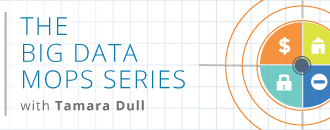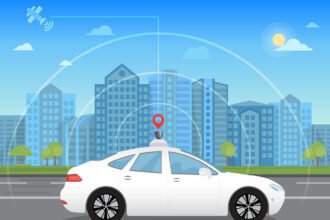 The patent trial that many in tech had watched with keen interest ended yesterday as the jury reached a verdict that is likely to have quite an impact on the software industry.
The patent trial that many in tech had watched with keen interest ended yesterday as the jury reached a verdict that is likely to have quite an impact on the software industry.
 The patent trial that many in tech had watched with keen interest ended yesterday as the jury reached a verdict that is likely to have quite an impact on the software industry. I rarely write about high profile tech trials and of course I’m not a lawyer nor reporter, so I’ll leave both the legal examinations and the details of the verdict to other media outlets that are better equipped to discuss them (and there’s no shortage of discussion on the topic this morning). As I read through the verdict and some reports of the trial though, I couldn’t help but feel compelled to take a look at what this judgment might mean for software companies and for the consumers of technology in general.
The patent trial that many in tech had watched with keen interest ended yesterday as the jury reached a verdict that is likely to have quite an impact on the software industry. I rarely write about high profile tech trials and of course I’m not a lawyer nor reporter, so I’ll leave both the legal examinations and the details of the verdict to other media outlets that are better equipped to discuss them (and there’s no shortage of discussion on the topic this morning). As I read through the verdict and some reports of the trial though, I couldn’t help but feel compelled to take a look at what this judgment might mean for software companies and for the consumers of technology in general.
Let me start out by saying that this verdict does nothing to fix the broken patent system, and in fact most likely helps ensure that no reform will happen in the foreseeable future. Neither potential outcome could have been positive for the patent system, I mean, if Samsung had won then it would have cast serious doubt on what sort of protection the system offers for innovative companies, perhaps thwarting innovation as companies would feel that the cost of innovation was not worth the potential gain in a world where any competitor could simply steal its IP. The Apple win pretty much locks us in to the status quo.
From a software perspective the verdict has some interesting ramifications. Fast following, a business model that is pretty common in the software industry, gets quite a bit more risky and difficult. It’s long been the practice for companies to find successful software and then add a business model twist to producing a similar product. In some cases it’s the idea of democratizing, or making a high end product available at a lower cost (maybe with less features or through a less expensive sales model) to a broader set of customers. Or it might simply be producing a slightly different version of the similar product. What ever the approach, fast follower companies will have to think twice (or maybe thrice) about producing anything that could be construed as a copy without licensing the IP up front.
A big part of the verdict was really focused on Samsung copying some of iOS user features. Apple, who defined the current landscape of smartphones with the iPhone and iOS, holds patents for many of the common user interface design features like pinch zoom or swipe to scroll. Whether you’ve used an iPhone or an Android phone, it’s pretty easy to switch back and forth and not feel lost because of the common UX. Now think about switching between Windows, OSX and Linux. Sure some actions are very similar, like how the mouse functions, but similarities end pretty quickly and without some experience, the user feels pretty lost. Of course there are features that are licensed but each OS has its unique UX. A common user experience on the smartphone, from a consumer perspective is a good thing. From Apple’s perspective though, that similarity came about through outright copying its IP. This ruling, if upheld, could bring in quite a bit in patent royalties and maybe even push some handset manufacturers to move to Microsoft or RIM for some future phones.
While users may experience some pain around future UX designs and switching OS / brands might be less attractive, there’s also the potential for increased innovation as vendors look for ways around IP. Some features will be licensed of course, but many others will have to change to keep other manufacturers out of court. The verdict does have impact on Google, although there are several other law suites that have yet to play out.
In general software companies will have to be very careful on building products that have a similar UX and on how features are implemented. There will need to be clear distinctions between how the products operate to prevent IP infringement. This isn’t the end of the war though, there are many more battles to be fought before this is put to rest.
Apple wins, at least on the PR front, and adds to its reputation as an innovator. For consumers it probably means some discomfort in switching between devices and maybe increased prices. The verdict does nothing to help what is clearly a broken patent system. The system put in place to increase / incent innovation mostly provides a way to stifle competition. Does that lead to greater innovation? What do you think?







